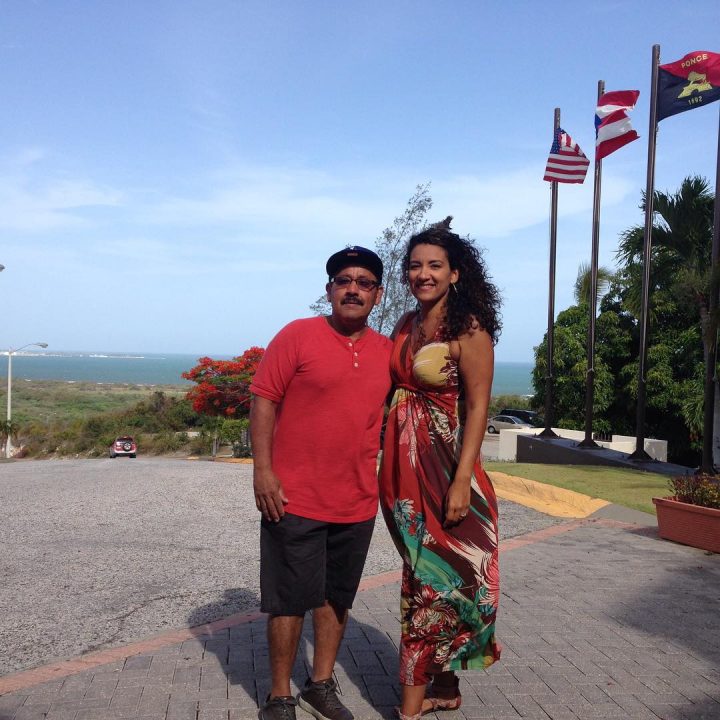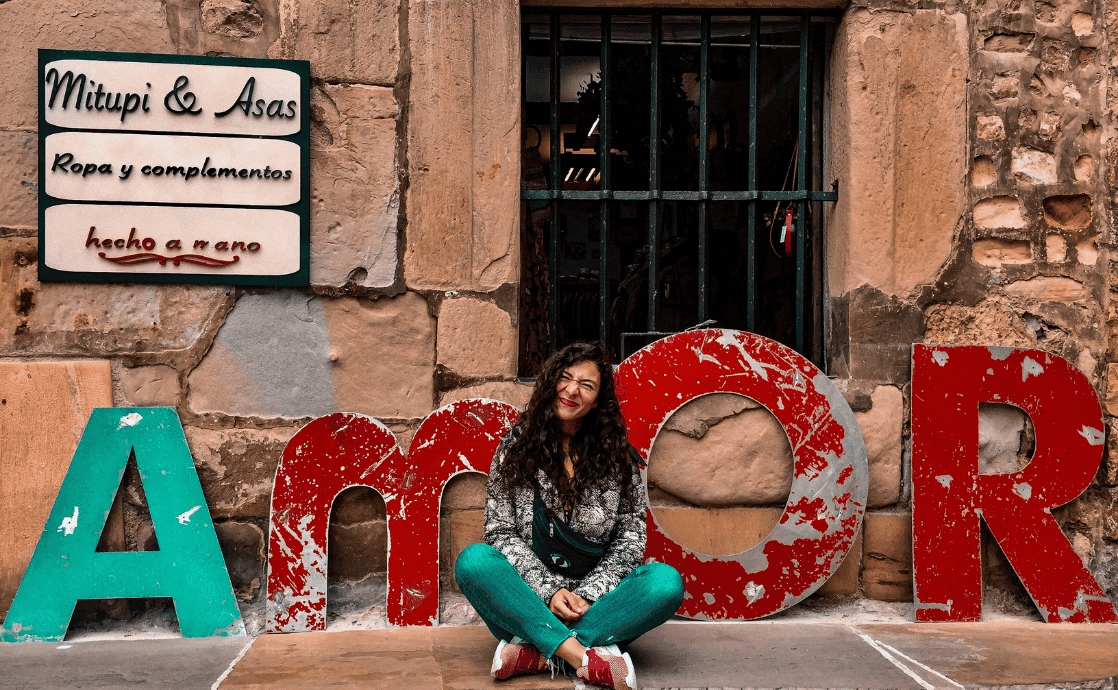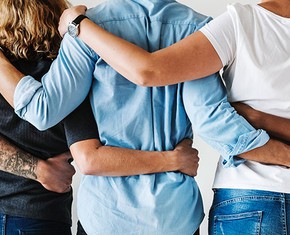The views expressed in our content reflect individual perspectives and do not represent the authoritative views of the Baha'i Faith.
Latino culture is a culture of warmth — of family, food, hard work, and celebration through thick and thin. This culture of connection keeps us going through life’s challenges, especially if we’re immigrants in the United States. It allows us to connect with people from all walks of life — and begin to fix some cultural wounds.
In Latin America, you might use “Black” as a friendly nickname for a darker-skinned friend in a way that would be utterly inappropriate in the United States. In Latino culture, the same racial taboos do not exist, and friendly conversation tends to involve much more teasing and outspokenness. But racism and colorism are still alive and well in Latino culture, often undetected as such. The legacy of colonization pits people of different skin tones and ancestry against each other, creating biases that can be very difficult to shed. Understanding those complex relationships and their effect on our shared history is crucial — as is doing something about it.
Growing up in Paraguay, I saw how the colonial Spanish caste system — where Europeans and their children were ranked above the Indigenous people, who were, in turn, ranked above the Black population — affects the way people perceive themselves. Even in Paraguay’s warm, welcoming culture, where the Guarani language and Yerba Mate are widely celebrated, pale skin and light-colored eyes are openly valued above darker skin and darker hair, and Indigenous features are considered undesirable. Anti-Black language persists in our jokes, our beauty standards, and our biases. You may call a friend “Black” in a loving way — but to actually ascribe African heritage to their identity would still be regarded as an insult in many spaces.
While we may often wave these ways of thinking off as ignorance instead of malice, understanding our history reveals these behaviors’ sinister context: It results from hundreds of years of colonization’s brainwashing — instilling self-hatred and prejudice within the local population.
For other Baha’is of Latino descent and me, the Baha’i writings provide clear guidance on eliminating culturally ingrained prejudices and working to foster unity.
The Baha’i Writings say, “God is no respecter of persons on account of either color or race…. Inasmuch as all were created in the image of God, we must bring ourselves to realize that all embody divine possibilities. If you go into a garden and find all the flowers alike in form, species and color, the effect is wearisome to the eye. The garden is more beautiful when the flowers are many-colored and different.”
For many of us, coming to the United States is an awakening because many conversations on systemic racism — and pushing for diversity and inclusive language — are only beginning in our home countries. Coming to the United States is often a culture shock that requires that we redefine our identities. Learning, understanding, and adjusting our behaviors takes time, particularly given the unique position Latino Americans — who are, according to Pew Research, the second-most discriminated against ethnic group in the United States, after African Americans — often find themselves in when immigrating here.
Nearly 1 in 3 people in federal prisons are Latinos, and Latino men are twice as likely to be incarcerated for drug-related offenses than white men, despite equal offense rates. At the same time, Latinas earn 54 cents, and Black women earn 62 cents for every dollar earned by a white man. And yet, Latinx people still enjoy many privileges in American society that our Black brothers and sisters do not.
Lina Boothby-Zapata, a Colombian immigrant, Baha’i, and social worker living in Massachusetts, finds that her Colombian heritage helps her in her daily work. “When I’m working with Latino families, I feel more empathy from them; we speak the same language, understand our culture, know our needs, and we know that there are Latin American countries where there is a lot of poverty. We also both know the immigration process, so they know I’m aware of what they’re talking about.”
But Lina also works with families from many other cultures, including European immigrants and African American families. “I feel the [cultural] differences more then,” she says. “When I speak English, people immediately perceive my accent.”
She uses her story as a way to connect with them and establish trust. She notes, however, that interactions can still come with tense moments. African American families are often suspicious of government agencies due to the racial injustice that persists in the system, particularly when it comes to child protective services. Even as a social worker with a sincere desire to assist these families, Lina sometimes struggles to build trust with them in the face of a long history of inequality.
Even in diverse communities of color across Latin America, prejudice still manifests itself, says Eugenio Marcano, a Dominican geography and soil science professor living in Massachusetts. “My culture is a happy and open-arms culture,” says Eugenio. “Dominicans live with the doors of our homes open, and everybody is welcome to visit at any moment, no appointments needed. But many Dominicans, unfortunately, do have some xenophobic feelings against Haitians caused by historical and political disputes between the two countries.”
For Eugenio, the Baha’i Faith’s complete rejection of any form of prejudice offered a vision of how a spiritual approach can begin to heal these ancient wounds. “The Baha’i Faith is clear about equality of races, gender, nationalities,” Eugenio says. “I just loved the Faith even more when I saw how much it emphasizes this. Dominicans would benefit enormously in understanding these principles of equality to deal with the xenophobic issues we have against our Haitians brothers and sisters.”
In California, Rubi Pacheco-Rivera finds that the Baha’i Writings have helped her understand this complex relationship between Indigenous, African, and Spanish heritage in a spiritual light — and see how that history affects where her family comes from.
“Puerto Ricans have African ancestry in addition to Spanish and Native Taino,” she tells me. “We have a long history of colonization, and although residents are U.S citizens, the island remains greatly forgotten and under-resourced. This tiny island, which is only 110 miles wide by 35 miles long, has been devastated recently by Hurricane Maria and almost daily earthquakes since December 2020.”

Rubi looks to the Baha’i Writings to explore the spiritual significance of Puerto Rico’s culture — particularly in relation to its African ancestry. Baha’u’llah, the prophet and founder of the Baha’i Faith, compared Black people “to the black pupil of the eye surrounded by the white. ‘In this black pupil you see the reflection of that which is before it, and through it the light of the Spirit shines forth.’” In 1953, Shoghi Effendi, the Guardian of the Baha’i Faith, described Black people as “pure-hearted and the spiritually receptive.”
These writings inspire Rubi’s understanding of her own culture and her role in promoting it in society. “The Puerto Rican people’s ability to be joyous even while enduring a long history of hardships reminds me of their special capacity as people of the African Diaspora — “Pupil of the Eye” — which I believe is the reason for their resiliency,” she explained. “I’ve always been proud of my culture and especially proud to have had opportunities to share it with others.”
In college, while earning her degree in business, Rubi channeled this love into her work at her university’s multicultural affairs office. After graduation, she coordinated the Puerto Rican Festival of Philadelphia for 5 years through her job at a Latino non-profit organization.
“After spending time in Mexico and seeing the social and economic disparities there, I returned with a desire to serve the Latinx community in Philadelphia,” Rubi says. “This was the beginning of what became a 15-plus year career in bringing resources to communities of color.”
Like Rubi, Lina uses her culture to bridge cultural gaps in her work with families of color — establishing bonds of love and understanding to work against the prejudice that so often divides us. “I tell people, ‘If you have difficulty understanding my accent, just tell me. I’ll explain myself again, no problem!’ I tell them about my country, where I’m from, that I speak Spanish — and that we can work together to solve any problem.”
Lina’s desire for these cultural connections drew her to the Baha’i Faith as she began to participate in regular interfaith prayer gatherings organized by some Baha’is in Cambridge, Massachusetts.
“What attracted me the most was the inclusion and diversity,” Lina says. “Sometimes we would count the number of languages we would say prayers in, and once we counted like 17 or 20 languages! That was so beautiful.
“Seeing that plurality and diversity in language — and everyone connected, able to say the same prayer in many different languages — it was very easy for me to see that we are all the same, we are all one human race,” Lina says. “If we treat each other with respect, we can understand each other.”
You May Also Like
Comments

















Otherwise excellent article on Latino & how they can help racism, sending it to my Latin friends.